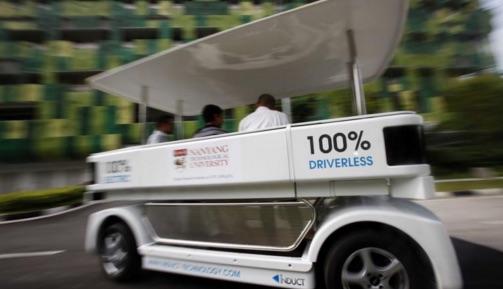IT’S A TINY, FLAT WEALTHY ISLAND where the locals adore technology. It’s also ruled by authoritarian technocrats who can push through daunting proposals with ease.
There are few places in the world better poised to embrace driverless cars than Singapore — and in the race to roll out autonomous vehicles commercially, the Southeast Asian city-state may even beat the United States.
